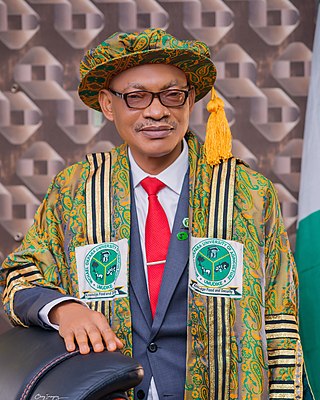
Food science is the basic science and applied science of food; its scope starts at overlap with agricultural science and nutritional science and leads through the scientific aspects of food safety and food processing, informing the development of food technology.
The Defence Science and Technology Group (DSTG) is a part of the Australian Department of Defence, which provides science and technology support to Defence and defence industry. The agency's name was changed from Defence Science and Technology Organisation (DSTO) on 1 July 2015. It is Australia's second largest government-funded science organisation after the CSIRO and its research outcomes have supported operations for over 100 years.

The Institution of Engineering and Technology (IET) is a multidisciplinary professional engineering institution. The IET was formed in 2006 from two separate institutions: the Institution of Electrical Engineers (IEE), dating back to 1871, and the Institution of Incorporated Engineers (IIE) dating back to 1884. Its worldwide membership is currently in excess of 158,000 in 153 countries. The IET's main offices are in Savoy Place in London, England, and at Michael Faraday House in Stevenage, England.

The Technical Centre for Agricultural and Rural Cooperation ACP-EU (CTA) was established in 1983 under the Lomé Convention between the African, Caribbean and Pacific Group of States and EU member states. Since 2000 CTA has operated within the framework of the ACP-EU Cotonou Agreement with a mission to “strengthen policy and institutional capacity development and information and communication management capacities of ACP agricultural and rural development organisations. It assists such organisations in formulating and implementing policies and programmes to reduce poverty, promote sustainable food security, preserve the natural resource base and thus contribute to building self-reliance in ACP rural and agricultural development.”. The centre is closed in 2020, after the end of the Cotonou Agreement and the subsequent end of its financing.

The Chartered Quality Institute (CQI), formerly known as the Institute of Quality Assurance (IQA), is the chartered body for quality professionals. It improves the performance of organizations by developing their capabilities in quality management. As a registered charity, the CQI exists to advance education in, knowledge of, and the practice of quality in industry, the public sector, and the voluntary sector.

The Institute of Marine Engineering, Science and Technology (IMarEST) is the international membership body and learned society for marine professionals operating in the spheres of marine engineering, science, or technology. It has registered charity status in the UK. It has a worldwide membership of over 12,000 individuals based in over 128 countries. The Institute is a member of the UK Science Council and a licensed body of the Engineering Council UK.

The Institute of Food Technologists (IFT) is an international, non-profit scientific society of professionals engaged in food science, food technology, and related areas in academia, government and industry. It has more than 17,000 members from more than 95 countries.
The Chinese American Food Society (CAFS) is an American-based organization founded in 1974 to develop relationships among Chinese-born food scientists in academia, government, and industry. Its current president is Yao Olive Li, a professor at California State Polytechnic University, Pomona.
Susan Lynn Hefle was an American food scientist who specialized in food allergens, specifically their detection and safety. Hefle was also a cyclist and a cyclist judge.
The International Union of Food Science and Technology (IUFoST) is the global scientific organization and voice for food science and technology representing more than 300,000 food scientists, engineers and technologists through its work in more than 100 countries. It is a voluntary, non-profit association of national food science organizations. IUFoST is the only elected scientific representative of Food Science and Technology in the International Science Council (ISC), elected by its peers across scientific disciplines. It is the only global representative of food science and technology to notable organizations such as the World Health Organization (WHO), Food and Agriculture Organization (FAO) of the United Nations, United Nations Development Programme and (UNDP), CODEX Alimentarius.
Food Technology is a monthly food science and technology magazine published by the Institute of Food Technologists (IFT) in Chicago, Illinois. The magazine addresses current issues related to food science and technology, including research, education, food engineering, food packaging, nutraceuticals, laboratory issues, and other items related to IFT. The magazine is free to IFT members as part of their annual dues.
Dennis R. Heldman is a food engineer. He served as president of the Institute of Food Technologists during 2006–2007.
Daryl Bert Lund is an American food scientist and engineer who has served in various leadership positions within the Institute of Food Technologists, including President in 1990–1991 and editor-in-chief of the Journal of Food Science from 2003-2012. Lund was named one of 26 innovators in Food Engineering magazine's 75th anniversary edition in September 2003.
Daniel E. Weber was the fourth Executive Vice President of the Institute of Food Technologists (IFT), serving in that manner from 1991 until his 2003 retirement.

The Australian Institute of Building (AIB) is a professional society founded in 1951, incorporated in 1955 and granted a royal charter in 1969. The institute is an association of building professionals, associate professionals and technicians engaged in building practice, teaching, or research throughout Australia and overseas. It has chapter offices in Hong Kong and Singapore and had a chapter office in New Zealand until the formation of the New Zealand Institute of Building in 1984.
The Council for Scientific and Industrial Research (CSIR) is a South African scientific research and development (R&D) organisation. It was established by an act of parliament in 1945 and is situated on its campus in Pretoria. It is Africa's largest research and development organisation and accounts for about 10% of the entire African R&D budget. It has a staff of approximately 3,000 technical and scientific researchers.
The Society for Underwater Technology (SUT) is an international learned society for marine science and technology with headquarters in London, England that was founded in 1966. There are branches in Aberdeen (Scotland), Houston (USA), Rio de Janeiro (Brazil), Newcastle (England), Perth (Australia), London (England), Melbourne (Australia), Kuala Lumpur (Malaysia), Singapore, Norway (Bergen), China (Beijing) West Africa (Nigeria), the Middle East (UAE) and new branches in early stages of development in St John's Newfoundland & the Eastern Mediterranean to be based in Cyprus. Membership is open to individuals, companies, and institutions with a genuine interest in the broad field of underwater technology. SUT is registered as a charity in the UK, other branches are constituted as charities or 'not-for-profits' as per local legislation.
The Institute of Food Science & Technology (IFST) is an independent qualifying body for food professionals based in the UK that is concerned with all aspects of food science and technology.
The Energy Policy Institute of Australia is an apolitical, not-for-profit energy policy body. It was created as the Energy Alliance of Australia in 1999 to collaborate with the Australian Government on the development of energy export markets. The Institute advocates technology neutrality as a core principle of energy policy. The Institute adopted the name Energy Policy Institute of Australia in 2011.

Maduebibisi Ofo Iwe is a Nigerian academic, author, and Professor of Food Science and Extrusion Technology. He is serving as the sixth substantive Vice-Chancellor of Michael Okpara University of Agriculture, Umudike. He assumed office on 1 March 2021.








